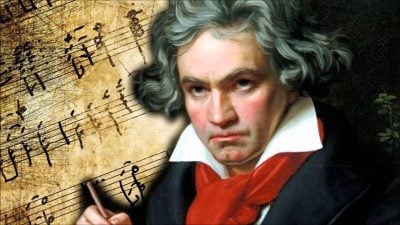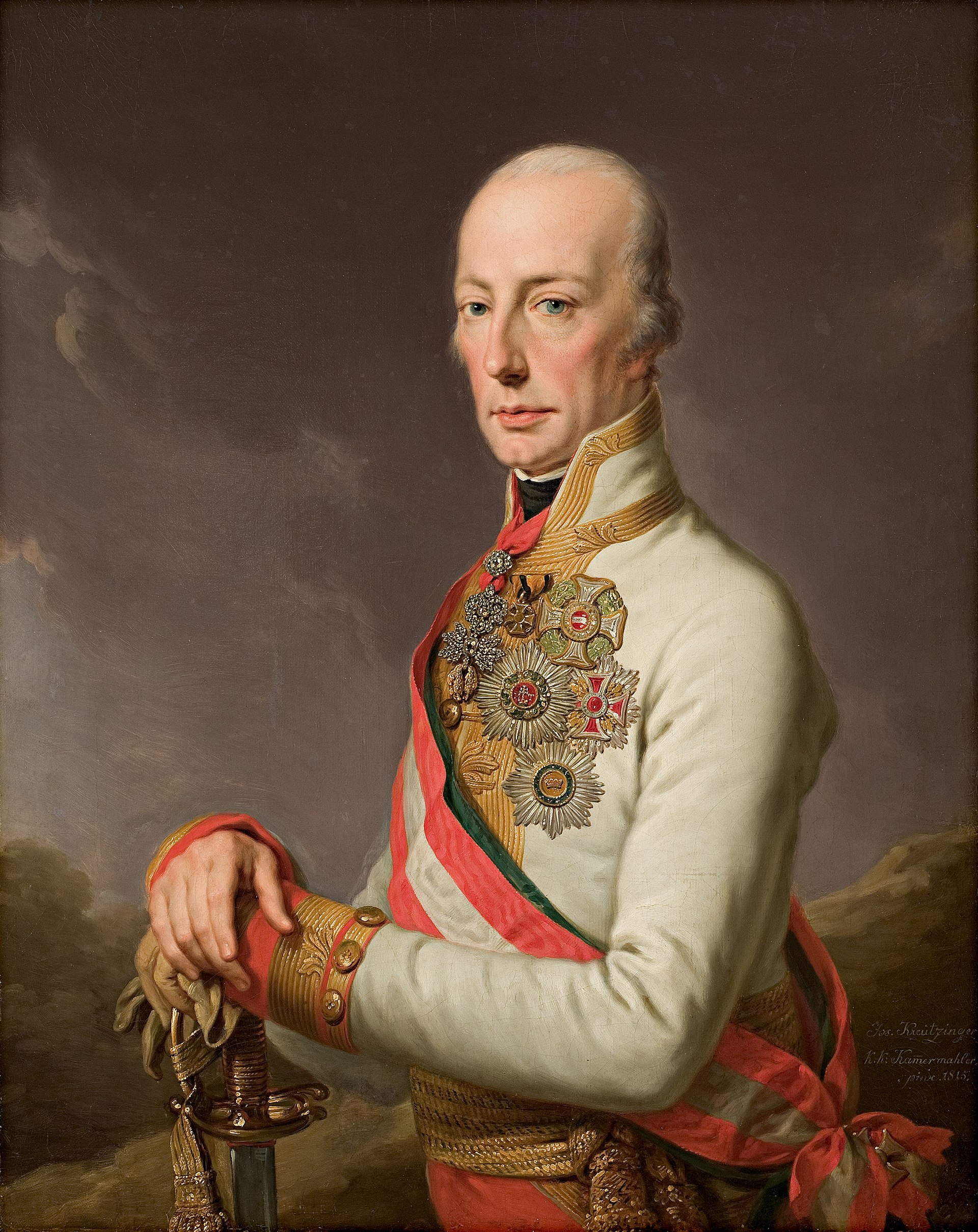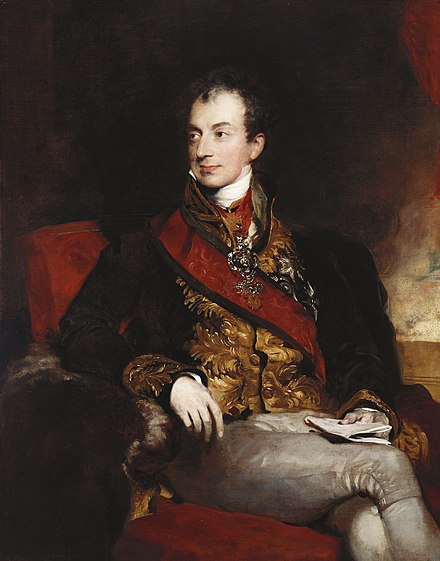Confronting the “Ugly Sounds” of Corrupt Politicians. Beethoven’s Ninth Symphony. First Performed in Vienna 200 Years Ago

All Global Research articles can be read in 51 languages by activating the Translate Website button below the author’s name.
To receive Global Research’s Daily Newsletter (selected articles), click here.
Click the share button above to email/forward this article to your friends and colleagues. Follow us on Instagram and Twitter and subscribe to our Telegram Channel. Feel free to repost and share widely Global Research articles.
First published by Global Research on September 22, 2023
Today, we commemorate Beethoven’s Ninth Symphony, the Choral, which was first performed in Vienna exactly 200 years ago, on May 7, 1824. at the Vienna Court Theater at the Kärntnertor,
Introduction
Friends, look around you: The World is in a state of economic and social chaos. Censorship and the suppression of fundamental human rights is ongoing at the level of the entire planet.
That is why Beethoven’s call: “Friends, get Rid of all those Ugly Sounds” is of utmost significance. It constitutes an Act of Resistance, without which the “Ode to Freedom”, namely “Real Democracy” is an impossibility.
As long as “totalitarian rule” prevails, whether it is in the 19th Century under The Austrian Empire or Today (2020-2030) under US-NATO and the World Economic Forum, the “Ode to Freedom” cannot under any circumstances become a reality.
Not surprisingly, the 21st Century Globalists and their intelligence apparatus are emulating the Austrian Empire, with “a spy network” far more sophisticated than that cooked up by Prince Klemens von Metternich.
In the present context, Beethoven’s “Friends, Get Rid of all those Ugly Sounds” should be understood as An Act of Resistance and Worldwide Solidarity against the prevailing structures of corruption, fraud, social divisiveness and political abuse. As well as a stance to the conduct of genocide against the People of Palestine.
Friends: What this indelibly requires is the creation of an articulate and cohesive mass movement at the level of the entire planet (nationally and worldwide) which confronts the Deep State Globalist architects of this insidious project: Big Money, Big Pharma, the Information Technology Conglomerates, the Security Apparatus, Intelligence, the Military Industrial Complex, Big Oil an Big Energy, and the Corporate Media.
While this is no easy task, Let us join hands and restore Schiller and Beethoven‘s “Ode to Freedom”.
Michel Chossudovsky, Global Research, October 7, 2023, May 7, 2024
200th Years Commemoration of Beethoven’s Ninth Symphony (May 7, 1824).
***
Ludwig van Beethoven’s Ninth Symphony’s first performance was in Vienna in May 1824 at the Kaiserliches Hoftheater am Kärntnertor
The Ninth Symphony is considered as a powerful symbol of solidarity, social equality, peace and human values.
But there is something else, which has been ignored by musicologists and historians of music:
Beethoven added three extra verses –coupled with corresponding musical pitches– which were not contained in Friedrich von Schiller’s original “Ode to Joy”:
Oh friends, not these sounds!
O Freunde, nicht diese Töne!
But let us sing more pleasantly
Sondern lasst uns angenehmere anstimmen
And more joyful ones!
Und freudenvollere!
These three verses were sung right at the beginning, they were followed by
Freude!
Freude!
Freude schoener Goetterfunken
Tochter aus Elysium
…
Schiller first composed the Ode in 1785, six years after the French Revolution of 1789. The text of Schiller’s Ode was revised several times. Originally Schiller composed an “Ode to Freedom” that he subsequently changed to “Ode to Joy”. This change “did not appear in print until 1849“.
“[It was the revised version of 1803] which Beethoven used to erect the impressive musical-textual monument of the fourth movement of his last symphony.
He also modified Schiller’s text quite drastically in places, adding, by way of an introduction, a whole strophe of his own.
In Beethoven’s eyes, adding a few lines of his own did not mean interfering with the text but establishing a transition between worldly desire – leading to chaos, as expressed in the introductory [three verses] of the fourth movement – and the will of Man to free himself, as evoked by the poet. (Maximiano Cobra, emphasis added)
Were these “three verses” at the beginning of the Ode to Joy inserted by Beethoven intent upon downplaying both the religious overtones as well as the “idealism” pertaining to peace, brotherhood and solidarity as contained in Schiller’s poem. I should mention that the Ode also contained “masonic elements”.
“we must bear in mind that the message conveyed by the Ode echoed and reflected its whole historical environment. Around 1810, in the streets of Bonn, vitalized by revolutionary echoes from across the Rhine, students sang the Ode to the music of the Marseillaise” (Maximiano Cobra).
The poem was alive with the French revolution’s ethos. “All humans become brethren where joy touches the heart,” wrote Schiller.”
Dear Friends, Listen carefully to the 4th movement.
Three verses were inserted (in musical phrases) at the outset of the 4th movement (O Freunde, nicht diese Töne!). What was Beethoven’s message to humanity??
O Freunde, nicht diese Töne! Oh friends, not these sounds! Sondern lasst uns angenehmere anstimmen, But let us sing more pleasantly.
which in substance means: Friends, get Rid of all those “Ugly Sounds”
 Was Beethoven expressing in the lyrics and melodies of the 4th Movement, the true nature of the “ugly sounds” which in Vienna in the year 1824 characterized the derogation of peace, brotherhood and fundamental human rights at the height of the Austrian Empire under Kaiser Franz I (1804-1834)
Was Beethoven expressing in the lyrics and melodies of the 4th Movement, the true nature of the “ugly sounds” which in Vienna in the year 1824 characterized the derogation of peace, brotherhood and fundamental human rights at the height of the Austrian Empire under Kaiser Franz I (1804-1834)
Kaiser Franz I, Emperor of Austria (image left)
This was during the “Metternich Period”, which was marked by social repression and “empire building”. Metternich forcibly crushed public demonstrations, coupled with media censorship and the suppression of freedom of speech.
Was this a call by Beethoven “to tone down the revolutionary spirit”?
Or was it a subtle message within Beethoven’s musical brilliance to the socially repressive regime of the Austrian Empire which at the time was under the helm of State Chancellor (Prince)  Klemens von Metternich?
Klemens von Metternich?
Klemens von Metternich (image right)
While Friedrich Schiller’s Ode to Joy is today considered Worldwide as a message to all mankind: “living in peace and harmony together”:
–these three verses added by Beethoven should be remembered as a “Symbol of Resistance” to totalitarian rule.
O Freunde, nicht diese Töne!
Metternich was firmly opposed to Liberalism: “He used a wide-ranging spy network to dampen down unrest”.(Alan Sked, “
As long as “totalitarian rule” which is predicated on the suppression of “real democracy” prevails, in the 19th Century under Metternich or Today (2020-2025) under the World Economic Forum, the “Ode to Joy” or the “Ode to Freedom” cannot under any circumstances become a reality.
Not surprisingly, the 21st Century Globalists and their intelligence apparatus are emulating the Austrian Empire, with “a spy network” far more sophisticated to that cooked up by Prince Klemens von Metternich.
There are (unconfirmed) reports that Metternich and Beethoven had met. Metternich was present at Beethoven’s funeral three years later in 1827. I should mention that Beethoven was not overtly against the aristocracy. He dedicated the Ninth Symphony to Koenig Friedrich Wilhelm III of Prussia.
The Choral starts at about 6.00 with the first three verses (which are indicated in German on the screen of the first video).
The second video featuring the 9th Symphony was recorded in Berlin
The full lyrics in German and English are indicated below at the foot of the article
Video
Beautiful and Creative Production of Beethoven’s Ninth Symphony (1.11) (Ode to Joy, Chorale at about 45’00)
Flash Forward to the 21st Century
Today, at the outset of the 21st Century, Europe’s “Classe politique” is once again committed to sustaining the “ugly sounds” of a social order marked by corruption, fraud and social divisiveness.
The music of Beethoven’s 4th Movement was embedded in the EU-Anthem. The poem by Friedrich von Schiller was not used.
Beethoven’s first three verses of the Ode to Joy. A Symbol of Resistance
Let us recognize Beethoven’s Ninth Symphony as a symbol of resistance, which in the contemporary context should be used to address the numerous “ugly sounds” of the World Economic Forum’s Great Reset, coupled with “Shock Treatment” and the Neoliberal agenda, which is endorsed by corrupt politicians, leading to the impoverishment of millions of people Worldwide.
O Freunde, nicht diese Töne!
Sondern lasst uns angenehmere anstimmen
Und freudenvollere!
Freude (Freude)
Freude, schöner Götterfunken
Tochter aus Elysium
Wir betreten feuertrunken
Himmlische, dein Heiligtum!
Was die Mode streng geteilt
Alle Menschen werden Brüder
Wo dein sanfter Flügel weilt
Wem der grosse Wurf gelungen
Eines Freundes Freund zu sein
Wer ein holdes Weib errungen
Mische seinen Jubel ein!
Ja, wer auch nur eine Seele
Sein nennt auf dem Erdenrund!
Und wer’s nie gekonnt, der stehle
Weinend sich aus diesem Bund
Freude trinken alle Wesen
An den Brüsten der Natur
Alle Guten, alle Bösen
Folgen ihrer Rosenspur
Küsse gab sie uns und Reben
Einen Freund, geprüft im Tod
Wollust ward dem Wurm gegeben
Und der Cherub steht vor Gott!
Michel Chossudovsky, September 21, 2023

